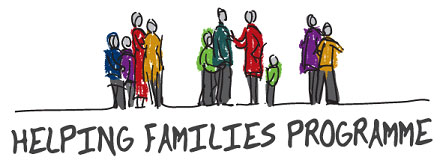Promoting good practice and learning from each other's
The West London children's social work partnership acknowledges that organisations and social workers can learn from each others areas of good practice.
This space provides a platform where good practice will be shared through either an article, slide share or links to documents.
Should you have any pieces of best practise which you and your service is able to share here please contact udo.helwig@lbhf.gov.uk.

The Helping Families Programme was commissioned by Ealing in April 2012. Developed by Institute of psychiatry, Kings College London, South London and Maudsley NHS Foundation Trust, the overall aim of the programme is to engage and then help multi-stressed parents raise their children safely, lovingly and with the confidence that they are doing the best by their children. Based on a clear set of principles and values, it uses an intervention model and offers a clear range of evidence-based strategies to help parents achieve their desired goals.
The Munro Review into Child Protection (DfE, 2011) recommends the introduction of evidence-based practice into health and social care teams. Providing evidence-based interventions to individuals and families with multiple disadvantages is very much at the forefront of the government health and social care agenda, as documented in the Social Justice: Transforming Lives (2012) paper.
We celebrated the success of the first group of social workers to complete the programme and become HFP practitioners in January this year (2013). Sherwyn Sicat and Joe Rogers two of the ten social workers who completed the programme describe the impact it's had on their practice and the positive outcomes for the families they work with.
Sherwyn Sicat
HFP is a collaboration between social worker and parent to develop a therapeutic relationship, identify goals and create a plan of action.
Throughout the programme establishing a purposeful partnership was more of a challenge than I thought. Whilst working with families I learnt that I needed
- To be supportive and connected to the parent's feelings and experiences,
- To be clear of the focus and intention of our relationship to ensure I was able to address the child protection investigation.
It is amazing through the HFP programme how I have managed to establish true purposeful partnerships with every parent I work with to create hope, motivation and real change for better outcomes with families.
For me, one of the benefits of the HFP is the dynamic and creative way it can be used. HFP uses a framework to facilitate this process. An example of this is demonstrated in a case worked on to help a mother address her child's behaviour. Together we started to use positive statements about herself as a mother and her parenting skills. This partnership brought her to a point where she was open to try a parenting module called "A Brighter View". This module facilitates a process for the parent to reflect on how unhelpful thoughts can lead to feelings and actions that are not so helpful.
HFP has allowed me to be flexible in my practice and reflect on different ways support families while addressing the core issues.
Joe Rogers
Joe views HFP as being a revelation to his practice, and not because it differs massively from social work values and good practice, but it gives a framework from which to base and then review work with families.
HFP opened my eyes more to the reality of what 'enough' change is and how you can work with parents knowing that what you are doing is making a difference but fostering hope for parents to achieve their goals in a different fashion.
An example of this was working on a case with a father on a goal unrelated to his children as this work progressed we were able to discuss how these interventions may impact on the rest of his life. We were then able introduce other ideas about his children that he had previously not wanted to discuss. His motivation engagement and trust in me as a practitioner had been positive and we could start to focus on other areas of his parenting. Having completed interventions that supported change with him as a parent we came to a place where he could start to think about the child protection concerns that were present.
My experience is that parents feel this programme is tailored to them and works on what they feel they need. I have found that it does not ignore child protection concerns or look to focus on unnecessary issues. HFP just addresses these in a way that helps parents to make real, sustained changes for themselves, their families and their children.
As you can see from the first-hand accounts of two of the social works, and from the evaluation of the programme, it has achieved some really positive outcomes for many families in Ealing, listed below are some of the headlines from the pilot:
Families who have been involved with social care for a prolonged period of time have made positive progress and as a result half of the Child Protection Cases on the pilot have been taken off Child Protection Plans
- Families have been given Child in Need status instead of being put on a Child Protection Plan if the parents were willing to engage in the HFP
- 14% of cases that were Child in Need have been closed to Social Care due to changes achieved through the HFP
- HFP helps to make decisions about seeking legal advice, thus preventing drift
- Social workers used the tools from the HFP to contribute to their statutory recording processes
- Social workers are enhancing their skills in engaging parents to ensure each contact is as purposeful as possible.
- A reduction in the number of families on Child Protection Plans (from 46% to 22%).




